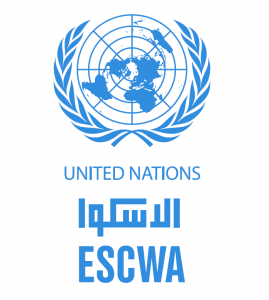United Nations Economic and Social Commission for Western Asia (UN ESCWA)
 The United Nations Economic and Social Commission for Western Asia (UNESCWA or ESCWA), headquartered in Beirut, Lebanon , is one of the five regional commissions under the administrative direction of the United Nations Economic and Social Council (ECOSOC) (ECOSOC). UNESCWA promotes economic and social development of Western Asia through regional and subregional cooperation and integration. It devises, promotes, and executes development assistance activities and projects in tune with the needs and priorities of the region of Western Asia. UN-ESCWA coordinates its activities with those of the major departments/offices of the United Nations headquarters and of specialized agencies and intergovernmental organizations, such as the League of Arab States, the Gulf Cooperation Council and the Organization of the Islamic Conference, with a view to avoid duplication and ensure complementarity, synergy and exchange of information. ESCWA has 18 member States.
The United Nations Economic and Social Commission for Western Asia (UNESCWA or ESCWA), headquartered in Beirut, Lebanon , is one of the five regional commissions under the administrative direction of the United Nations Economic and Social Council (ECOSOC) (ECOSOC). UNESCWA promotes economic and social development of Western Asia through regional and subregional cooperation and integration. It devises, promotes, and executes development assistance activities and projects in tune with the needs and priorities of the region of Western Asia. UN-ESCWA coordinates its activities with those of the major departments/offices of the United Nations headquarters and of specialized agencies and intergovernmental organizations, such as the League of Arab States, the Gulf Cooperation Council and the Organization of the Islamic Conference, with a view to avoid duplication and ensure complementarity, synergy and exchange of information. ESCWA has 18 member States.
History
UNESCWA was first established in 1973 as the UN Economic Commission for Western Asia (UN-ECWA). It was established by an Economic and Social Council resolution and was the successor to United Nations Economic and Social Office in Beirut (UNESOB). The organization’s name was changed from Economic Commission for Western Asia (ECWA) to Economic and Social Commission for Western Asia (ESCWA) in 1985.
Work on gender
The ESCWA Centre for Women (ECW) was established on October 1, 2003. ECW continues and expands the work carried out by the Women Empowerment and Gender Mainstreaming Team, formerly part of the Social Development Division at ESCWA. ECW serves to draw attention to and act in defence of the rights of Arab women. The centre believes that the empowerment of women is a fundamental part of development.
The centre focuses on three main areas of empowerment: economic (poverty alleviation), social (gender roles and partnership in the family) and political (sharing in decision-making and political participation). The centre works with Members, NGOs, and the media to achieve its goals. Toward this end, the centre concentrates its efforts on a series of activities:
- analysing the situation of Arab women in the ESCWA region and compiling country profiles
- providing support to Members by formulating action-oriented measures and gender-sensitive legislation, policies and strategies
- raising awareness for gender issues through reports, studies, conferences and the media
- providing technical assistance for institutional and capacity building of national machineries for women and NGOs
- advocating for the empowerment and advancement of Arab women in order to eliminate discrimination
- mainstreaming a gender perspective into development policies, programmes and projects as a tool for achieving gender equality
ECW is currently overseeing the production of the most recent Status of Arab Women (SAW) Report. It is being completed in cooperation with the United Nations Development Fund for Women (United NationsIFEM), the Arab Women’s Organization (ALO,) the Arab League and the Center for Arab Women Training and Research (CAWTAR). This year the report compares national legislation in Arab countries to the CEDAW.


